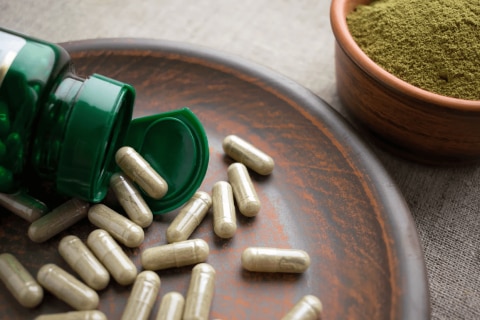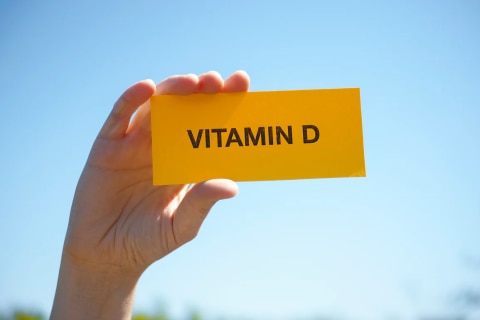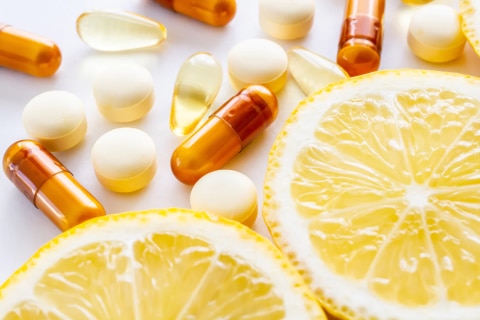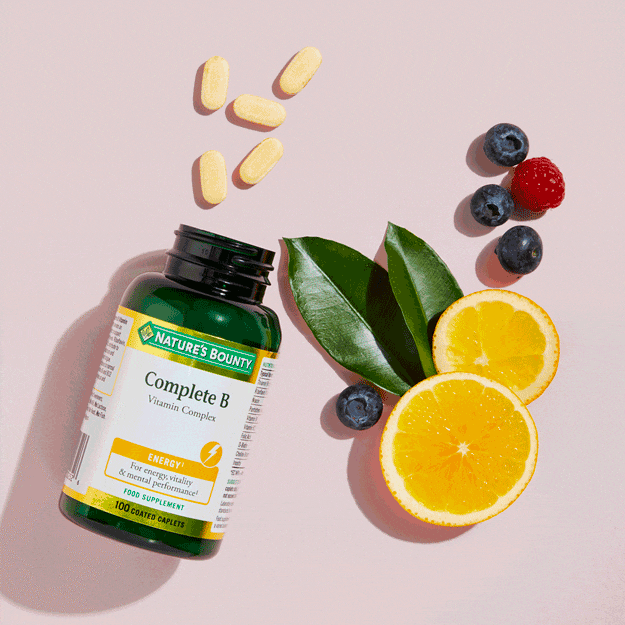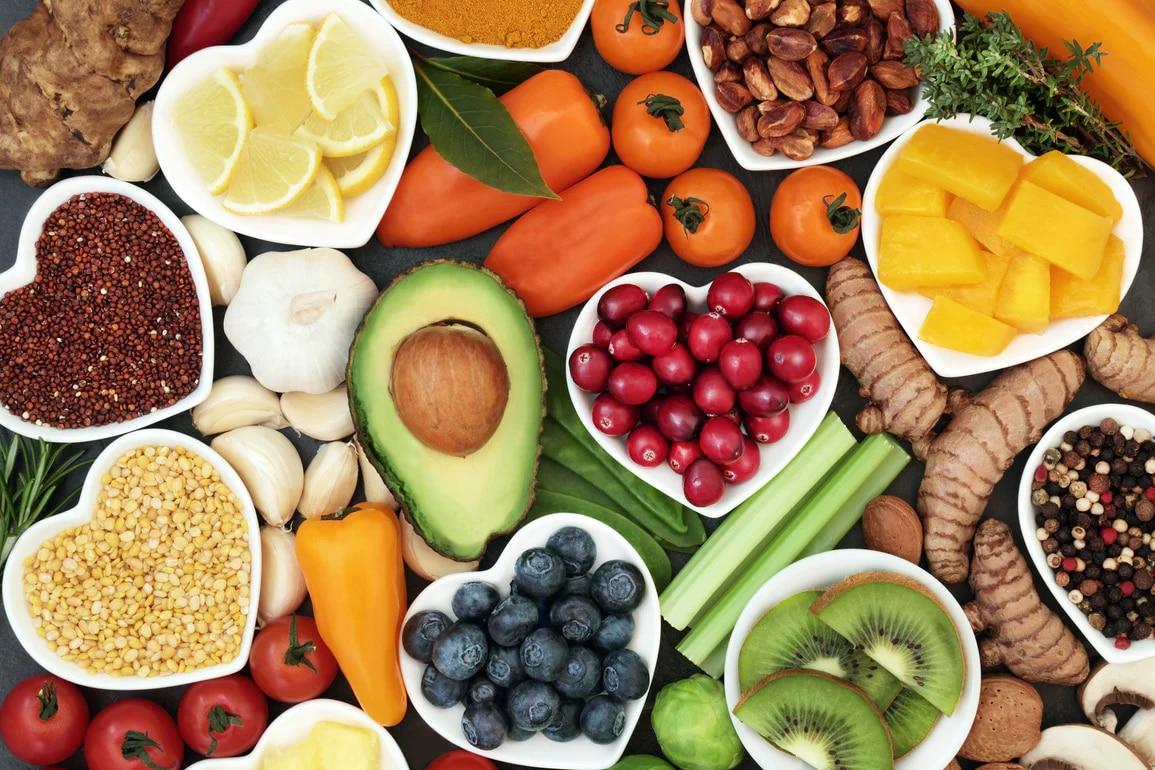
Supplements to consider for Vegans
In an ideal world, the foods we eat would provide us with all the nutrition we need. Yet too many of us fail to meet daily recommended intake of a number of essential vitamins and minerals.1
Add on the challenges of obtaining necessary nutrients of a vegan diet. Could those who seek to eschew animal-based foods be at greater risk of nutrient deficiencies?
The answer is an unfortunate “yes,” but the good news is that vegans can help ensure they’re getting what they need with adequate planning. Here is a list of some of the nutrients that vegans can focus on to make sure they achieve recommendations.
Vitamins and minerals:
Iron
Iron contributes to energy production and helps to reduce tiredness and fatigue.2 It helps to form red blood cells and haemoglobin that transport oxygen around the body.3 In the diet, iron is available in two forms: heme and non-haem. Heme iron is found in animal products and non-haem iron is found in plants. Heme iron is easier for the body to absorb because unlike plant-based iron sources, it does not contain absorption inhibitors such as phytates, oxalate and polyphenols.4
The recommended daily intake amount (nutrient reference value) of iron for an average adult is 14 mg. Whilst non-heme iron is available in a wide array of vegan foods such as legumes, dried fruits, cruciferous vegetables, tofu, nuts and seeds, research suggests that vegetarians have a higher prevalence of depleted iron stores and vegan women a higher prevalence of iron-deficiency anemia.4 One helpful tip for increasing iron absorption is to get enough vitamin C. Vitamin C, found in various fruits and vegetables, can aid iron absorption.5
Vitamin B12
It’s well established that individuals following a vegan diet should supplement or consume foods that are fortified with vitamin B12. The reason is that there are no reliable plant-based sources of the vitamin.
Vitamin B12 contributes to normal energy production and the functioning of the nervous system.6 A deficiency may not show up for several years after switching to a vegan diet, but it’s important to maintain adequate levels as damage to the nerves caused by a deficiency is irreversible.7 If you experience any symptoms of vitamin B12 deficiency such as lack of energy, extreme fatigue, sensations such as numbness and tingling or any others, it is important to speak to your doctor.
Calcium
Calcium is well known for its role in the maintenance of normal bones and teeth. It is also required for normal neurotransmission and muscle health.8, 9 A review of various studies found that 76% of vegans were not consuming sufficient calcium and one study found that blood levels of calcium were lower in vegans compared to non-vegans.10 Whilst dairy products are off the menu in a vegan diet, there are still plenty of good sources such as leafy greens, seeds, beans, lentils and also fortified plant milks.
Iodine
The thyroid gland is located in the neck and makes two hormones that are vital for energy production in the body. Iodine is a mineral that is found in seafood and dairy products that contributes to the normal production of thyroid hormones and normal thyroid function. Low levels can lead to a condition known hypothyroidism.11 Iodine also contributes to the normal functioning of the nervous system and normal cognitive function.12
Research has found that those following a vegan diet have the lowest levels of iodine followed by vegetarians.13 Most plants do not utilise iodine for growth so there are few plant-based sources of the nutrient. An exception is seaweed and other sea-based plant foods. Fortified products and supplements can help with meeting daily requirements.
Selenium is another mineral that works with iodine to support thyroid health. It can be found in Brazil nuts, sunflower seeds and couscous.14, 15
Supporting your diet with a multivitamin and mineral supplement can help to fill any gaps of these nutrients. An example, is vegan-friendly Full Spectrum Multivitamin, which provides 14mg of iron, 2.4 µg of vitamin B12, 150 µg of iodine and 23 other key nutrients for your daily wellbeing.
Omega-3
Essential fatty acids are an important part of a healthy diet. These are called “essential” as they cannot be made by the body. The two essential fatty acids that our bodies need are linoleic acid (LA), an omega-6 fatty acid, and alpha-linolenic acid (ALA), an omega-3 fatty acid.
Nuts, seeds and their oils (such as borage and evening primrose oils) contain linoleic acid, while pumpkin seeds, walnuts, and flaxseeds contain alpha-linolenic acid.
Additionally, you may have heard of fish-derived omega-3s. These are the long-chain omega-3 fatty acids, eicosapentaenoic acid (EPA) and docosahexaenoic acid (DHA).Whilst consuming ALA rich foods may be helpful in raising levels of EPA and DHA, conversion to these long-chain forms is limited in both men and women so supplementation may be useful.16, 17
Until recent years the only EPA and DHA supplement options were from fish. However, innovations have led to algae-based ingredients providing a direct vegan source of DHA and EPA.
Protein
Proteins are made up of amino acids needed to build and repair muscle and tissues. A complete protein source contains all nine of the essential amino acids.
Whilst there are not as many complete proteins available on a vegan diet, there are still plenty of good vegan protein sources such as quinoa, beans, lentils, seeds, tofu and peas to name a few.
However, research suggests that around 27% of the vegan population may not be consuming an acceptable range of protein.10 They may also not be eating a variety of protein sources to obtain sufficient amounts of all nine essential amino acids.
Eating a variety of protein-based vegan foods at each meal helps to ensure your diet contains a wide array of essential amino acids. There are also various vegan protein powders available such as those from pea and brown rice protein. These can be mixed with a plant -based milk alternative of your choice or added to foods such as soups or cereals.
It’s important to be aware of any areas of your diet which may be lacking and supplement appropriately. Supplements do not typically contain fibre or the wide array phytonutrients that are present in food, so always focus on your diet first.
Disclaimer:
Food supplements should not be used instead of a varied balanced diet and a healthy lifestyle
References:
- Derbyshire E. Micronutrient Intakes of British Adults Across Mid-Life: A Secondary Analysis of the UK National Diet and Nutrition Survey. Front Nutr. 2018 Jul 19;5:55.
- EFSA Health Claim: Iron contributes to normal energy-yielding metabolism and to the reduction of tiredness and fatigue.
- EFSA Health Claim: Iron contributes to normal formation of red blood cells and haemoglobin and to normal oxygen transport in the body
- Pawlak R, Berger J, Hines I. Iron Status of Vegetarian Adults: A Review of Literature. Am J Lifestyle Med. 2016;12(6):486-498.
- EFSA Health Claim: Vitamin C increases iron absorption.
- EFSA Health Claims: Vitamin B12 contributes to normal energy-yielding metabolism functioning of the nervous system.
- Kumar, N. et al. Neurologic Presentations of Nutritional Deficiencies. 2010. Neurol Clin. 28: 107-170
- EFSA Health Claims: Calcium is needed for the maintenance of normal bones and teeth.
- EFSA Health Claims: Calcium contributes to normal neurotransmission and normal muscle function.
- Bakaloudi DR, Halloran A, Rippin HL, Oikonomidou AC, Dardavesis TI, Williams J, Wickramasinghe K, Breda J, Chourdakis M. Intake and adequacy of the vegan diet. A systematic review of the evidence. Clin Nutr. 2021 May;40(5):3503-3521
- EFSA Health Claim: Iodine contributes to the normal production of thyroid hormones and normal thyroid function.
- EFSA Health Claim: Iodine contributes to normal cognitive function and functioning of the nervous system
- Eveleigh ER, Coneyworth LJ, Avery A, Welham SJM. Vegans, Vegetarians, and Omnivores: How Does Dietary Choice Influence Iodine Intake? A Systematic Review. Nutrients. 2020 May 29;12(6):1606.
- EFSA Health Claim: Selenium contributes to the normal thyroid function
- Burns-Whitmore B, Froyen E, Heskey C, Parker T, San Pablo G. Alpha-Linolenic and Linoleic Fatty Acids in the Vegan Diet: Do They Require Dietary Reference Intake/Adequate Intake Special Consideration? Nutrients. 2019 Oct 4;11(10):2365.
- Burdge GC, Jones AE, Wootton SA. Eicosapentaenoic and docosapentaenoic acids are the principal products of alpha-linolenic acid metabolism in young men*. The British journal of nutrition. 2002; 88(4):355-63.
- Burdge GC, Wootton SA. Conversion of alpha-linolenic acid to eicosapentaenoic, docosapentaenoic and docosahexaenoic acids in young women. The British journal of nutrition. 2002; 88(4):411-20.
Don't keep all the good info to yourself.
Share this with friends!
Explore more blogs:

